Sensory toys, also known as fidget toys, have gained popularity in recent years for their ability to help children with special needs. These toys are designed to stimulate and engage the senses, providing a therapeutic outlet for children who struggle with sensory processing and regulation.
For students with special needs, sensory toys can be especially beneficial as they provide a way to calm and focus their minds during times of stress or overstimulation. They offer a non-intrusive form of therapy that can aid in improving behavior and attention span.
In this article, we will explore how sensory toys can specifically benefit students with special needs and why they should be considered an essential tool in any classroom setting.
We will also discuss the different types of sensory toys available and how they can be incorporated into an individualized education plan for students with special needs. Let's dive in to discover the power of sensory toys in helping these students thrive.
What Is Special Needs Students?
In general, students with special needs refer to those who require additional support and accommodations in a classroom setting due to challenges in physical, emotional, or cognitive development.
This can include conditions such as Autism Spectrum Disorder (ASD), Attention Deficit Hyperactivity Disorder (ADHD), Sensory Processing Disorder (SPD), and more.
The term "special needs" is often used interchangeably with the term "disability," but it's important to note that every student is unique and may require different forms of support. It's crucial for teachers and caregivers to understand each individual student's specific needs in order to provide them with the best education possible.
How Sensory Toys Can Help Special Needs Students
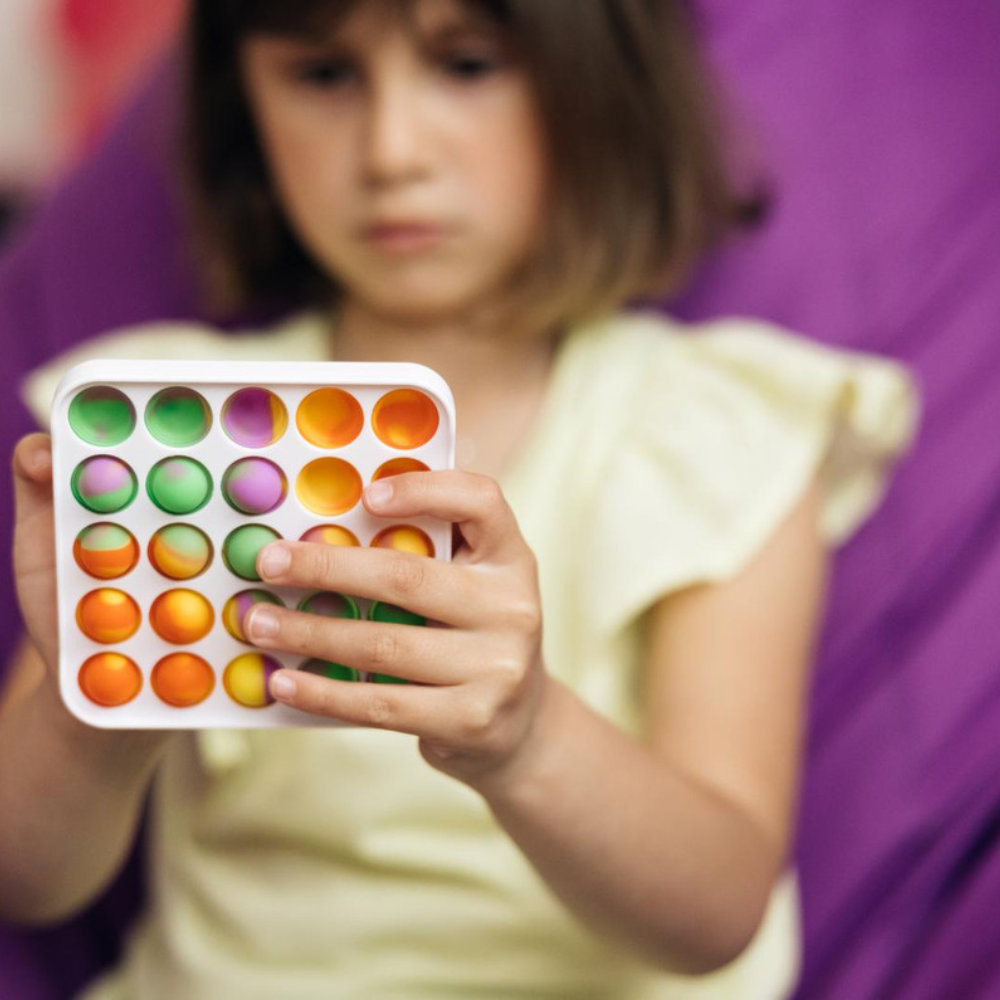
As mentioned before, sensory toys are designed to stimulate and engage the senses. For students with special needs, these toys can help in various ways:
Promoting Calmness and Self-Regulation
Sensory toys play a crucial role in promoting calmness and self-regulation among special needs students. These toys provide a safe and engaging outlet for students to explore and manage their emotions.
By engaging with sensory toys, students can experience soothing tactile sensations, calming visual stimuli, or gentle sounds, which help them regulate their sensory input and find a sense of calm.
These toys offer a non-intrusive way for students to self-soothe and regain control over their emotions, ultimately fostering a more positive and focused learning environment. Through the use of sensory toys, students can develop essential self-regulation skills that benefit their overall well-being and academic success.
Improving Focus and Attention Span
Sensory toys can also help students with special needs improve their focus and attention span. Many students with disabilities struggle to maintain attention for extended periods of time, making it challenging to learn in a traditional classroom setting.
By providing sensory toys as a tool for self-regulation, students can better manage distractions and stay engaged in learning activities. These toys offer a hands-on approach to learning, which can be more effective for students who have trouble focusing on abstract concepts or sitting still for long periods.
Facilitating Sensory Integration
One of the primary benefits of sensory toys for special needs students is their ability to facilitate sensory integration. Sensory processing disorder, a common condition among students with disabilities, affects how the brain receives and responds to sensory information.
Sensory toys can help these students by providing a variety of sensory inputs in a controlled and safe environment. By regularly engaging with different textures, sounds, and movements, students can learn to process sensory stimuli more effectively and improve their overall sensory integration.
Additionally, sensory toys can also be used as a form of sensory diet therapy, where specific toys are selected and incorporated into a student's daily routine to help them regulate their sensory input.
Enhancing Fine Motor Skills
For students with physical disabilities or delays in fine motor skills, sensory toys can be an essential tool for improving hand-eye coordination, strength, and dexterity. Many sensory toys require various forms of manipulation and grasping, which can help strengthen hand muscles and improve fine motor control.
By incorporating these toys into playtime or classroom activities, students can develop important fine motor skills while engaging in a fun and therapeutic activity.
Providing a Safe and Non-Intrusive Outlet for Emotions
Lastly, sensory toys provide a safe and non-intrusive outlet for students to express and manage their emotions. Children with special needs often struggle with intense emotions that can be challenging to regulate or communicate.
By offering sensory toys as an option for emotional regulation, students can learn healthy coping mechanisms and feel more in control of their feelings. This can lead to improved behavior, self-esteem, and overall well-being.
Types of Sensory Toys
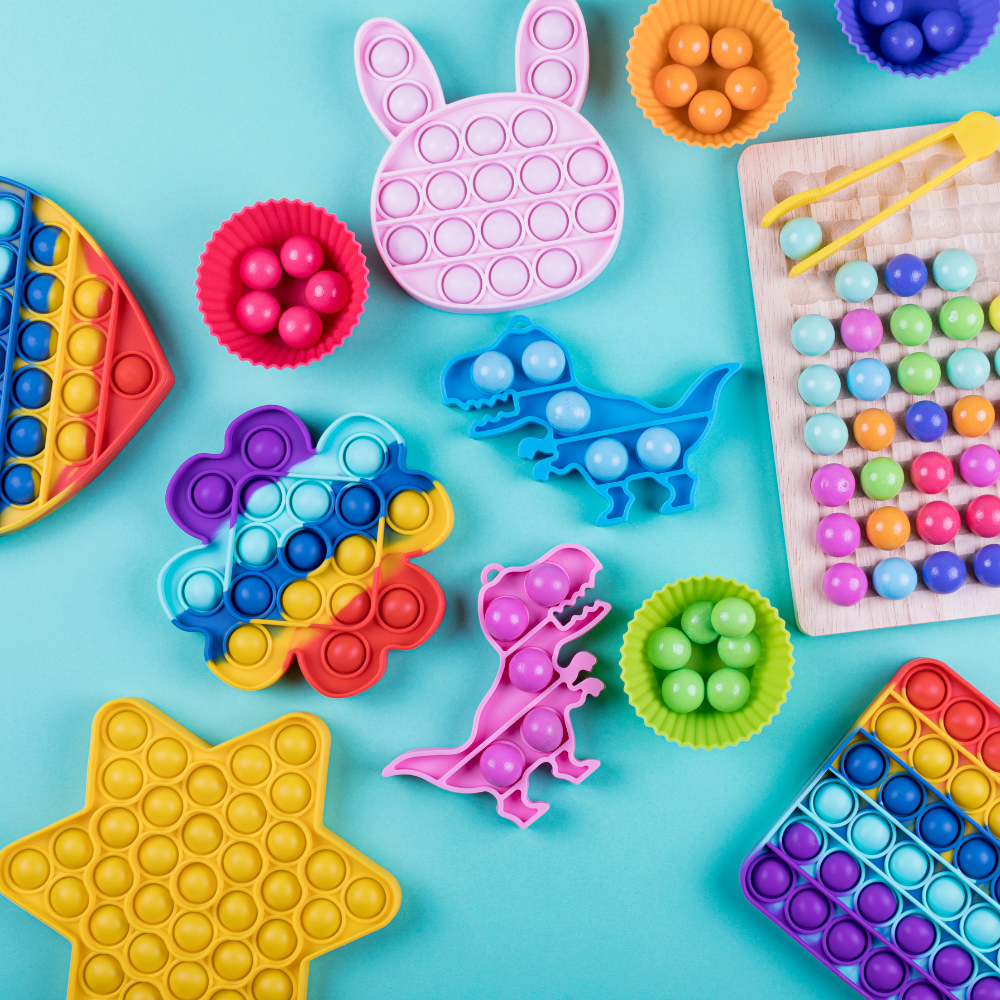
There are various types of sensory toys available, each designed to target specific senses or promote different forms of play. Some common types include:
- Fidget toys (e.g., stress balls, tangles):
- Tactile/sensory bins (e.g., sand, water beads)
- Weighted toys (e.g., lap pads, stuffed animals)
- Visual stimulation toys (e.g., light-up toys, bubble tubes)
- Auditory stimulation toys (e.g., musical instruments, noise-canceling headphones)
It's essential to consider the specific needs of each student when selecting sensory toys. Some students may have sensitivities or preferences for certain types of sensory input, so it's important to provide a variety of options and observe how they respond to different toys.
Incorporating Sensory Toys into an Individualized Education Plan
Individualized Education Plans (IEPs) are tailored educational plans designed for students with disabilities. These plans outline the student's specific learning goals, accommodations, and support services.
For students who would benefit from sensory toys in their education, it's crucial to include them in their IEP. This ensures that teachers and caregivers are aware of the student's need for sensory input and can provide appropriate accommodations and support.
Additionally, incorporating sensory toys into an IEP can also help with obtaining funding to purchase these resources and ensure they are consistently available for the student throughout their educational journey.
Plus, including sensory toys in an IEP sends a message to the student that their unique needs and ways of learning are valued and supported. So not only do sensory toys benefit the student's well-being and academic success, but they also promote a positive and inclusive learning environment.
How To Choose the Right Sensory Toys
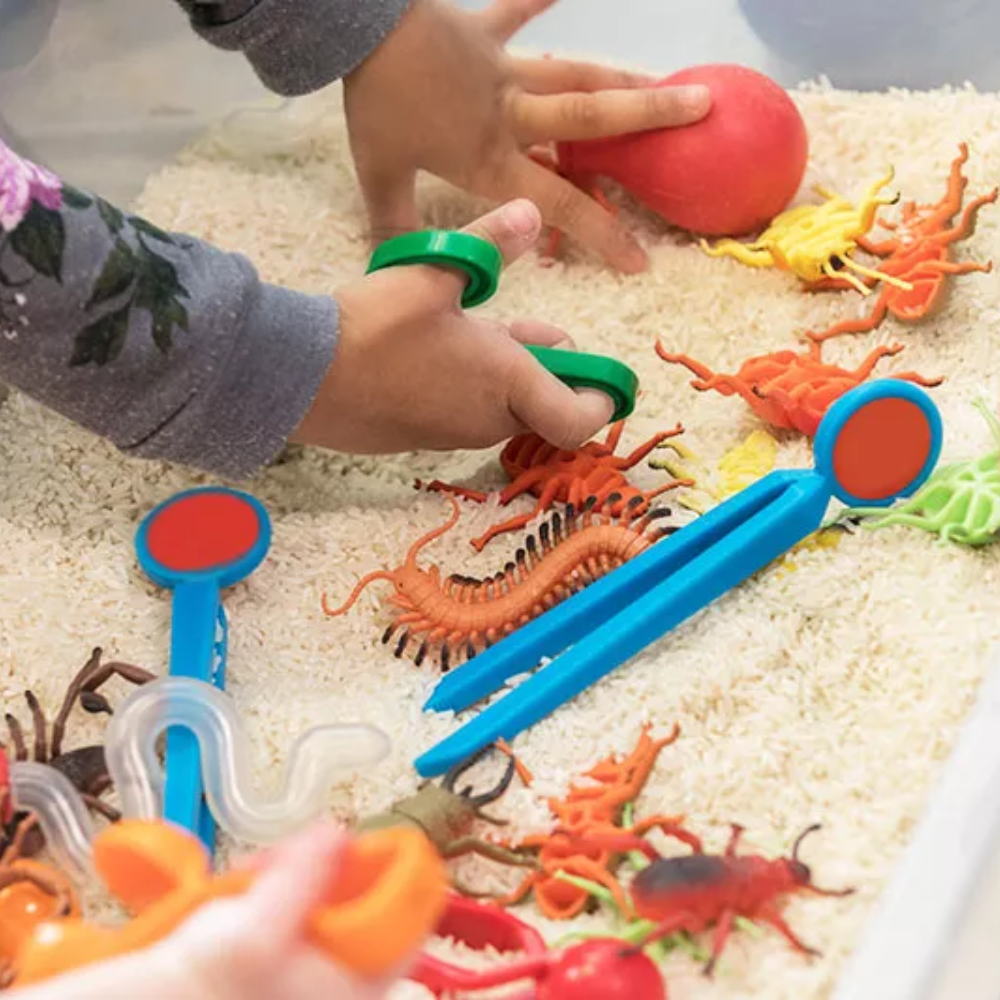
When choosing sensory toys for special needs students, it's important to consider their specific needs and preferences. Here are some tips for selecting the right sensory toys:
- Considering Individual Sensory Needs: As mentioned, different students may have sensitivities or preferences for certain types of sensory input. It's crucial to observe and consider each student's individual needs when selecting toys.
- Safety: Safety should always be a top priority when choosing sensory toys, as some students may put objects in their mouths or have other safety concerns. Look for toys that are durable, non-toxic, and age-appropriate.
- Variety: Providing a variety of sensory toys allows students to explore and find what works best for them. Plus, this provides opportunities for incorporating different forms of play and targeting multiple senses.
- Engagement: Choose toys that are engaging and fun for students. If a toy is too difficult or frustrating, it may discourage them from using it.
- Incorporate Student Interests: Consider the student's interests and hobbies when selecting sensory toys. This can help motivate and engage them in playtime or learning activities.
These are just a few guidelines for selecting sensory toys, but ultimately, it's essential to observe and listen to the student's needs and preferences. With the right combination of sensory toys, students can benefit greatly in their academic performance, emotional regulation, and overall well-being.
Are Sensory Toys Beneficial for All Students?
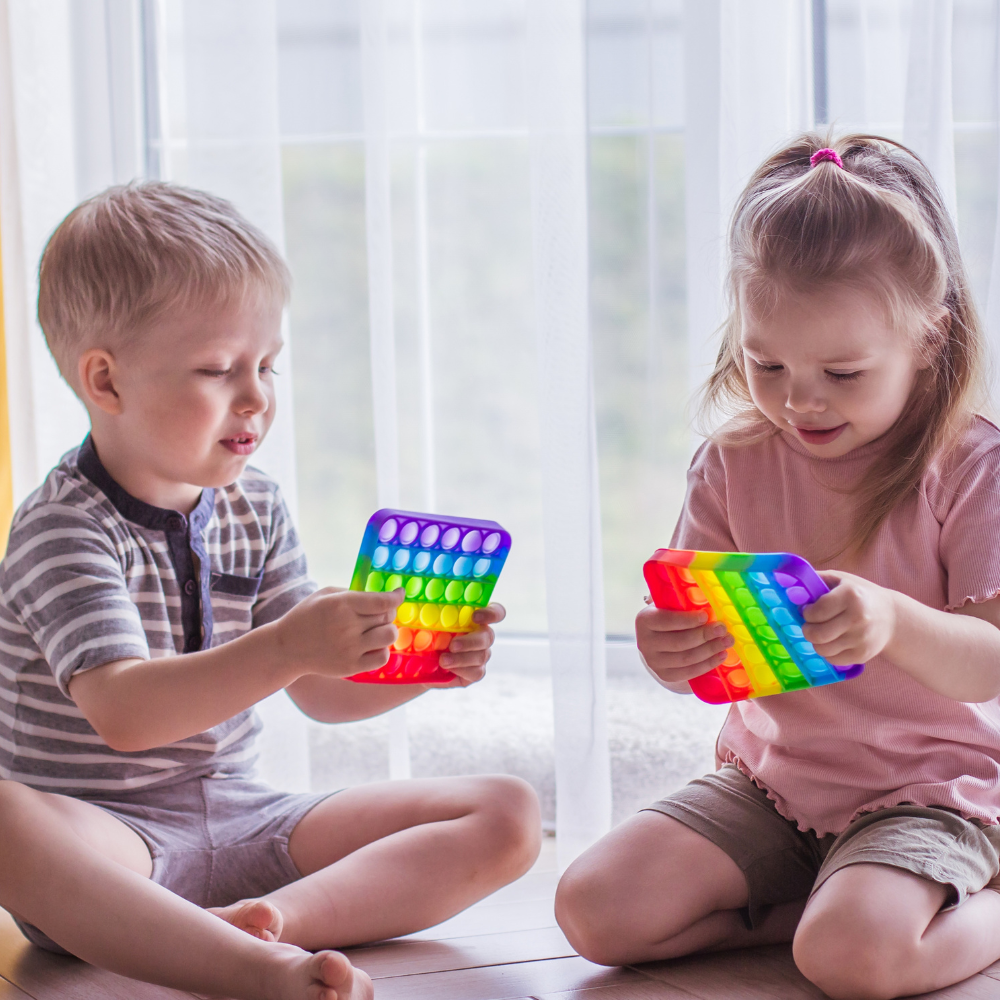
While sensory toys are often associated with students with special needs, they can benefit all children. In today's fast-paced and technology-driven world, all children can benefit from taking a break and engaging in playtime that promotes sensory development and emotional regulation.
Additionally, sensory toys can also be beneficial for typically developing children who may struggle with anxiety or attention difficulties. These toys offer a calming outlet and help improve focus and concentration.
Plus, incorporating sensory play into family time or classroom activities can also promote bonding and social skills for all children. So whether a child has special needs or not, everyone can benefit from the use of sensory toys.
FAQs
How do sensory toys stimulate sensory systems?
Sensory toys stimulate sensory systems by engaging a child's senses, such as touch, sight, and sound. These toys provide sensory stimulation that helps improve focus and regulate emotions.
Why are sensory tools helpful for children with autism?
Sensory tools benefit children with autism by providing soothing sensory experiences. Items like sensory chew toys and weighted blankets help them manage overstimulation and feel calm.
How do sensory toys promote communication skills?
Sensory toys encourage interaction and play, which can improve communication skills. They provide structured activities that support social connections, especially for children with autism.
What role does tactile stimulation play in sensory experiences?
Tactile stimulation from sensory toys, such as textured objects, helps children explore different sensations. This is essential for strengthening sensory systems and improving their response to touch.
Are sensory chew toys effective for special needs students?
Yes, sensory chew toys are effective. They provide oral sensory stimulation, which can help children with autism self-regulate and stay focused during learning activities.
Conclusion
Sensory toys are valuable resources for promoting the development and well-being of students with special needs. These toys provide various forms of sensory input, enhance fine motor skills, and offer a safe outlet for emotions.
When choosing sensory toys, it's important to consider individual needs and preferences, prioritize safety, and promote engagement. By incorporating these toys into an IEP and everyday activities, students can thrive academically and emotionally in a supportive and inclusive environment.
Additionally, all children can benefit from using sensory toys to develop their senses, manage emotions, and promote social skills. So, let's continue to advocate for the use of sensory toys in education and playtime for the betterment of all children.
Subscribe to our email newsletter and unlock access to members-only content and exclusive updates.
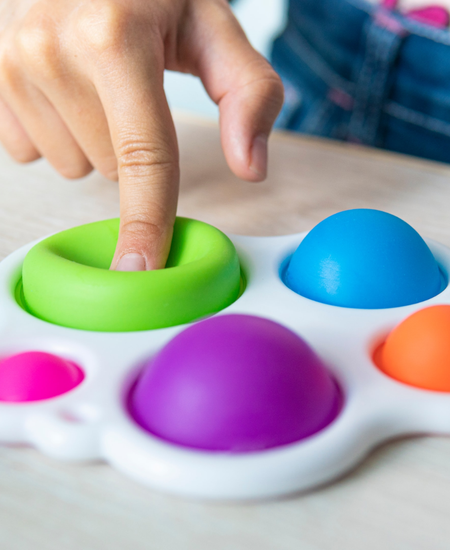
Comments